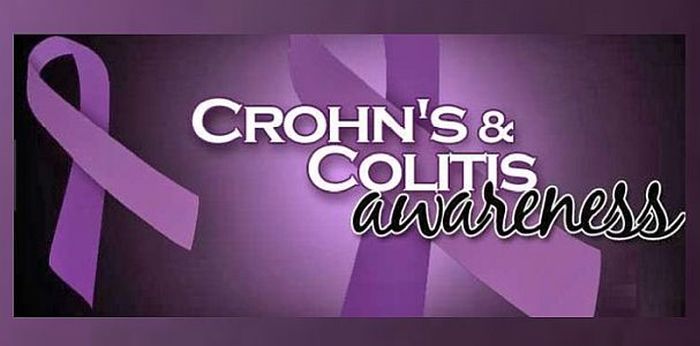
Do you know the differences between Crohn’s Disease and Colitis

Inflammatory bowel diseases (IBD), particularly Crohn’s disease and ulcerative colitis, affect millions of people worldwide. As we observe National IBD Awareness Month, it’s important to increase awareness and understanding of these chronic conditions. Both Crohn’s disease and ulcerative colitis fall under the IBD umbrella and cause long-term inflammation in the digestive tract, leading to discomfort, disruptive symptoms, and serious complications if untreated.
While they share some similarities, they also have distinct differences that significantly impact diagnosis, treatment, and management.
–
The Difference Between Crohn’s Disease and Ulcerative Colitis: Location Matters
One of the most notable distinctions between Crohn’s disease and ulcerative colitis is where they occur within the digestive tract. Crohn’s disease can affect any part of the gastrointestinal (GI) tract, from the mouth to the anus. This widespread potential for inflammation means symptoms can appear in various locations along the digestive pathway. In some cases, Crohn’s can even lead to issues in multiple areas at once, making it unpredictable and complex to manage.
In contrast, ulcerative colitis is limited to the large intestine (colon) and rectum. This localization provides a more predictable pattern of inflammation, which affects only the inner lining of the colon. For this reason, ulcerative colitis can often be more straightforward in terms of understanding its progression, though it still presents serious challenges for patients.
–
Inflammation Patterns: Patches vs. Continuity
The pattern of inflammation is another key difference. In Crohn’s disease, inflammation tends to occur in patches, meaning that healthy tissue can exist between areas of inflammation. This patchy distribution often complicates diagnosis and can result in a range of symptoms depending on where the inflammation occurs. The variability of Crohn’s disease sometimes requires multiple imaging tests and biopsies to pinpoint the affected areas accurately.
Ulcerative colitis, on the other hand, is characterized by continuous inflammation along the colon without healthy tissue in between. This uniform pattern of irritation makes it easier to identify on diagnostic imaging, but the inflammation is often more widespread, affecting the entire colon and rectum. The continuous nature of ulcerative colitis inflammation can make it particularly uncomfortable, as patients often feel a persistent urge to have a bowel movement.
–
Symptoms: Similarities and Differences
Both Crohn’s disease and ulcerative colitis share common symptoms, including abdominal pain, diarrhea, fatigue, and weight loss. However, each condition presents unique manifestations that can help in diagnosis.
Crohn’s Disease Symptoms: In addition to the general symptoms, people with Crohn’s may experience mouth sores, anal fissures (tears), or even fistulas (abnormal connections between tissues). Symptoms can extend beyond the digestive tract, affecting areas such as the skin, eyes, and joints. This extra-intestinal involvement is one of the hallmark features that can distinguish Crohn’s from ulcerative colitis.
Ulcerative Colitis Symptoms: Those with ulcerative colitis are more likely to experience rectal bleeding and a sudden, urgent need to have a bowel movement. The inflammation in ulcerative colitis is often more concentrated, leading to frequent bathroom trips, which can be disruptive to daily life. Chronic inflammation can also lead to complications like anemia due to blood loss.
–
The Diagnostic Journey: A Complex Process
Diagnosing IBD requires a thorough process. Doctors use a combination of blood tests, stool samples, and imaging techniques such as colonoscopies, MRIs, or CT scans to distinguish between Crohn’s disease and ulcerative colitis. In some cases, a diagnosis of “indeterminate colitis” may be given when the condition doesn’t fit neatly into either category.
Patients often endure a lengthy diagnostic journey, requiring multiple tests over time to rule out other conditions and confirm IBD. While this process can be frustrating, it is crucial for ensuring an accurate diagnosis and developing an effective treatment plan.
–
Treatment Options: Managing Symptoms and Inflammation
Fortunately, both Crohn’s disease and ulcerative colitis have a variety of treatment options designed to manage symptoms, reduce inflammation, and improve patients’ quality of life. Treatment typically involves:
Medications: Anti-inflammatory drugs, immune system suppressants, and biologics are often prescribed to control inflammation and prevent flare-ups. These medications help to regulate the immune system’s response, minimizing damage to the digestive tract.
Dietary Modifications: Certain dietary changes can alleviate symptoms for many patients. Working with a healthcare provider to identify and avoid trigger foods, while incorporating an IBD-friendly diet, is often part of a comprehensive treatment plan.
Surgery: In some cases, surgery may be necessary, especially when medications fail to control symptoms or complications like bowel obstruction or abscesses develop. Surgical options vary depending on the severity of the disease and the areas affected.
–
Living with IBD: Finding Support and Care
Living with Crohn’s disease or ulcerative colitis presents daily challenges, but it’s important to remember that you are not alone. Millions of individuals manage IBD with the help of healthcare providers, supportive communities, and personalized treatment plans. Maintaining a close relationship with your gastroenterologist is essential for staying on top of the disease and finding the best ways to manage your symptoms.
At Gastro-MD, our experienced team of gastroenterologists is dedicated to helping you navigate life with IBD. We provide personalized care, ongoing support, and the latest in diagnostic and treatment options to help you take control of your gut health. Whether you’re newly diagnosed or have been managing IBD for years, we are here to guide you every step of the way.
Understanding the differences between Crohn’s disease and ulcerative colitis is key to effective management. By working closely with your healthcare team, staying informed about your condition, and seeking timely treatment, you can lead a fulfilling life despite your IBD diagnosis. Remember, knowledge is power when it comes to managing your health.
–
(Sources: Dr. Donna Powell & Dr. Renee M. Marchioni Beery / Gastro-MD)
(Cover image: RDW Productions)
Posted by Richard Webster, Ace News Today
Follow Richard on Facebook, Twitter & Instagram






